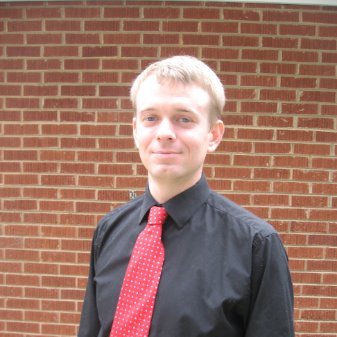The Taylor Opportunity Program for Students (TOPS), which offers state-funded, merit-based scholarships to Louisiana colleges for student achievers in high school, celebrates its 25th anniversary in Louisiana this year. Originally conceived in 1988 as the Taylor Plan by oilman Patrick Taylor, the TOPS concept has spread to 22 states. This fall, NolaVie is talking to a number of TOPS graduates, to find out how the program has contributed to their personal stories.

Educator Aaron Forbes
For Spanish teacher Aaron Forbes, TOPS was not so much about enabling him to go to college, but about creating opportunities before he even got there.
“One of the cool things about TOPS,” Forbes says, “is that they let me wait a year to use it.”
And that, he says, changed his life.
A New York native who moved with his family to the north shore when he was 13, Forbes knew he was college-bound after graduating from Northlake High School in Covington.
“I looked at Loyola, and a couple of schools up north,” says Forbes, “but when I saw the price tags, I knew they were not an option.”
With the help of TOPS, however, he could afford any of the Louisiana state schools. “I chose Louisiana Tech, because it was the farthest away,” he says with a laugh.
With a desire to major in visual arts, Forbes started looking for a way to get to Europe for the summer before his freshman year. He was thinking Florence, maybe, or Rome.
Italy didn’t happen; instead he landed in a small town in Spain – a place known not for art or romance, but for its smell of rotten broccoli and indigenous blood sausage, says Forbes. He wound up staying for a year.
“I lived with a host family and enrolled in Spanish class and TOPS allowed me to hold off on college for a year. I didn’t know it, but TOPS was immediately opening doors I didn’t even know about.”
Forbes returned to Louisiana Tech, spent two years there, and then transferred to LSU to pursue an international studies degree.
“Even with TOPS covering most of the tuition, it was tight,” says Forbes, who worked a number of jobs – demolition, painting, light carpentry, horticultural work, even catering — to pay living expenses. And he was working study angles, too. He found a Boren scholarship that could take him to Mexico, where he worked on a sustainable gardening project in the high-poverty rural Sierra Tarahumara. TOPS funding paid for academic credits from nearby La Universidad de Monterrey.
Forbes returned to New Orleans and UNO, where he earned his BA in international studies in January 2006 – in the first class to graduate after Hurricane Katrina.
“TOPS was flexible,” he says. “One life goal led to another. I thought I’d be painting murals one day in Italy, and now all I’m painting is my house. But doors just kept opening.”
After UNO, Forbes says he wanted to give back some of what he had received. So he joined the Peace Corps, requesting placement in Africa “to get more languages under my belt.”
He ended up in Benin, West Africa, where he learned French and Fongbe, met his future wife and found many cross-cultural ties to New Orleans. “My wife is from the same village as the father of Toussaint L’Ouverture,” he says.
These days, Forbes teaches Spanish and English as a Second Language at Morris Jeff Community School, an International Baccalaureate elementary and middle public school.
“I had absolutely no idea I’d end up here,” he says. “TOPS played a huge role. I might have found other scholarships, but most are hard to get or not accessible. I’d never have been able to study abroad and learn languages.”
Or to share his rich life experiences with his students. Forbes is still exploring the world, he says. But now it’s from his own classroom.
 NOLAbeings Multimedia artist Claire Bangser created NOLAbeings as a portrait-based story project that marries...
NOLAbeings Multimedia artist Claire Bangser created NOLAbeings as a portrait-based story project that marries...  Voodoo in New Orleans: Reviving history: New Orleans fortune telling This article takes a deep dive into the history of Voodoo in New Orleans, its hybridization with Catholicism, and its present-day place in the city's culture. The author visits fortune-tellers in the French Quarter, using their guidance as a tool for introspection rather than a deterministic predictor of the future. Through her experiences in New Orleans, the author feels a mystical connection to both the past and the future.
Voodoo in New Orleans: Reviving history: New Orleans fortune telling This article takes a deep dive into the history of Voodoo in New Orleans, its hybridization with Catholicism, and its present-day place in the city's culture. The author visits fortune-tellers in the French Quarter, using their guidance as a tool for introspection rather than a deterministic predictor of the future. Through her experiences in New Orleans, the author feels a mystical connection to both the past and the future. 